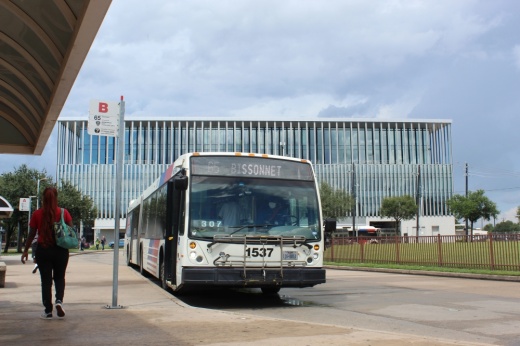The Metropolitan Transit Authority of Harris County is expected to see an increase in both its operating and capital budgets for the 2021-22 fiscal year, according to METRO officials.
The METRO board of directors met Sept. 21 to give an overview of the drafted budget as well as to receive public comments. It was unanimously approved at the Sept. 23 board meeting.
In total, the board approved $1.3 billion in expenditures for its budget, said Phil Brenner, METRO director of management and budget. This includes $740.5 million for the operating budget, $276.8 million for the capital budget, $105.5 million for the debt service budget and $188.6 million for the general mobility program.
This budget is larger than FY 2020-21’s budget of $1.15 billion, which METRO officials attributed to the decrease in revenue due to COVID-19, as previously reported by Community Impact Newspaper.
“If you look at the revenue to debt multiple, we are leaps and bounds ahead of most of our peer agencies,” said Sanjay Ramabhadran, a METRO board of directors member.
METRO is expected to see an increase in workforce positions by about 83 jobs due to expanding services and repair needs, according to an email from Monica Russo, public information officer for METRO.
The capital budget is mainly divided into two categories: $144.2 million in expansions and enhancements and $132.6 million in core business items necessary to maintain service, according to official budget documents.
“Service drives everything we do in the operating budget,” Brenner said while presenting the budget Sept. 21.
The budget also detailed a multitude of projects, many of which are part of METRONext. One of METRO’s main focuses is tackling the issue of making sure every bus stop is accessible to every rider, Russo said.
METRONext is the agency’s $3.5 billion bond approved by voters in November 2019, which aims to ease traffic congestion, add expansion to the METRO, and make accessibility and safety upgrades.
A main focus for the METRONext program in FY 2021-22 is the bus stop accessibility/site improvement program that aims to increase accessibility and an easier usage system for riders, according to budget documents.
“These improvements include installing new bus shelters, sidewalks, [Americans with Disabilities Act-compliant] ramps, bus stop pads and crosswalks considered as Tier 1 Bus Stop ADA Compliance upgrades.”
METRO is expected to bring in an estimated $1.2 billion in revenue, according to budget documents. $823.8 million is expected to come from sales tax, along with $318.8 from grants and $27.3 million from fares, among others. METRO officials also have no plans to increase either the fixed-route or paratransit fare, which are some of the lowest base fares in the country, according to budget documents.
The METRO board will meet Oct. 28 at 10 a.m.





